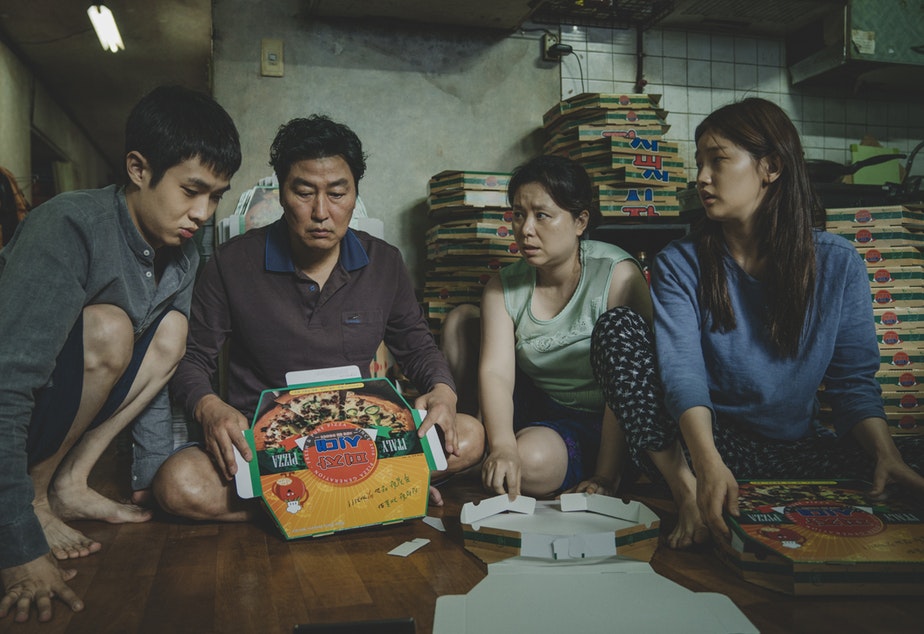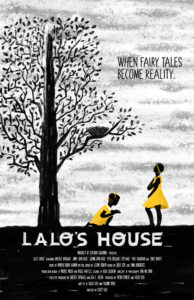Filmmakers
Power and Romance

Is the power a force, in which passion prevailed? Films may descend deep in the psyche and even further into the soul and their ethereal quality can get you high. There’s a movie we’ve all connected to on a very personal level. Early as children we have a favorite film we wish to watch over and over. Their stories affect us and we care about the images, and the prose of these images strikes our hearts. They’re most definitely the stuff of dreams. Through the heads of Georges Méliès and Coppola onto Harmony Korine and some future director that is right now just a child, the image projected is a dream.
You dream, and when your eyes watch a screen it’s familiar. Sometimes it’s horrible but it’s usually a pleasant time. We recognize the emotions at play and there’s an infinite pool to drink from. Those involved in the making know these dreams are the real deal, and they all get paid. But doing your job is different than grabbing an idea and seeing it through to the end involved in every aspect. Films derive from many places and there’s a thin line between the films created and marketed for a consumer profit, and those that are simply an artistic passion.
The elevation a blockbuster can induce is eerily similar to a Herzog film. So if some moving pictures are created strictly for business purposes, what’s the difference between the films shown in art house/indie cinemas and theatre chains? Is the offering so different it requires a different mindset?
Yes and no. Undoubtedly a particular audience is studied when a production company is setting aside millions upon millions of dollars to hand over to a project that must make all that cash back and more. And what of the others? The films made of dreams? For no matter how much a movie costs to make, they’re all crafted by the hearts of humans. People work for days or months even years, writing and planning and shooting. We know this, it’s common knowledge films take extensive work to be made but it’s not something that we usually have in mind as we watch one. Films have a certain dignity and we innately hold a respect for them. Ten million dollars or ten dollars, bad or good, either all films are dreams or none.
The available encompassing of other mediums through film allows for craftsman of all dimensions to become involved and so we get a myriad of arts in one sitting. Perhaps that fact makes films more understanding to us. The pretty colors of a cinematographers lighting choice and loud music of a blaring orchestra often become magic. They’re undeniably alluring, an experience of realized dreams capable of change.
Great power is a conduit for change. We’re shown things one would never otherwise experience. ‘Jurassic Park’ visualized dinosaurs to an awesome degree, opening our minds to the world of prehistoric times. Kurosawa’s ‘Ikiru’ showed us the hypocrisy in bureaucracy and embraced the fragile hold we have with our personal legacies, exposing emotional and visual experiences we can awe at and connect with. This is why documentaries can immediately shift the attention to it’s subject and force upon the viewers a change of perspective and why films such as ‘Blackfish’ can create change. The directors and the cameras get in the thick of it, teaching or preaching but usually simply observing a part of the universe, enlightening us.
Take for example a classic that struck fear into the showers of every home, Hitchcock’s ‘Psycho’. People were literally afraid to shower because of the infamous murder sequence, which in fact did not show any actual stabbing. With clever editing the knife penetration is only implied, enhanced by sound effects. Throughout the nation people were fainting at the horror! Dull by today’s comparisons, at the time of the release it was unabashedly relentless, killing off the main character part way through the film and showing her Hershey’s blood run down the drain. The image of her dying eye a frenzy of surreal and horrific emotions. We’re not safe anywhere. This is what people felt in their steel auditorium chairs, an experience like no other. One’s breath was held within because of the power of the images.
When films promote a certain viewpoint or study a subject, documentary or otherwise, it’s the filmmaker’s intention to say something even if that something is about nothing. Social direction shines ahead of its time in films, questioning current or future state of affairs, offering options or showing us the consequences. In the drama, the horror, the laughter, we see ourselves up on that screen in characters, the dialogue, in shots of landscapes. It’s us up there, we feel it, and that power will sway spirits, forging truth in ourselves. That power is capable of creating love.
I’ve always liked movies, just like everyone else, but I’ve fallen in love. I wasn’t struck stupid by this love until my family bought a local video store at a ripe age and I had potent access to thousands of titles. It was a dream I’ve never dreamt come true, it was meant to be. As life went on, it changed for the better as I lunged into the depths of imagination and never found my way out. This simple power caused a shift in my being and I’m not alone. Films reflect life, therefore they’re alive.
I may be coming off a bit over sentimental, but I think it’s appropriate. This romantic view of cinema I have is because I’ve been involved in a lifelong romance with it, and likely you have too.
Filmmakers
Out of the Basement: The Social Impact of ‘Parasite’

When Bong Joon-ho’s Parasite won multiple Oscars at this past weekend’s 92nd Academy Awards, the reaction was one of almost unanimous joy from the attendees and much of the American audience. Setting aside the remarkable achievement of a South Korean movie being the first to win Best Picture, this was due to the fact that so many people have been able to identify with Bong’s film, engaging in its central metaphor(s) in their own individual ways. Everyone from public school students to Chrissy Teigen have expressed their affection for the film on social media, proving that the movie has reached an impressively broad audience. The irony of these reactions is noting how each viewer sees themselves in the film without critique—those public school students find nothing wrong with the extreme lengths the movie’s poor family goes to, and wealthy celebrities praise the movie one minute while blithely discussing their personal excesses the next. Parasite is a film about class with a capital “C,” not a polemic but an honest and unflinching satire that targets everyone trapped within the bonds of capitalism.
Part of Parasite’s cleverness in its social commentary is how it depicts each class in such a way as to support the viewer’s inherent biases. If you’re in the middle-to-lower classes, you find the Kim’s crafty and charming, and echo their critiques of the Park’s obscene wealth and ignorance. If you’re a part of the upper class, you empathize with the Park’s juggling of responsibilities while indulging in their wealth, and have a natural suspicion toward (if not revulsion of) the poor. If you have a foot in both worlds, like housekeeper Moon-gwang and her husband Geun-sae, you can understand how the two of them wish to not upset the balance, so that they can secretly and quietly profit. All throughout Parasite, there’s a point of view to lock onto.
The point of the film is not to single out one of these groups as villainous, but to show how they’re part of a system that is the true source of evil. The movie has been criticized for lacking a person (or persons) to easily blame, which would of course be more comforting dramatically. Bong (along with co-writer Han Jin-won) instead makes the invisible systems of class and capitalism the true culprit, which is seen most prominently at the end of the film. All the characters are present at the same party, whether as hosts, guests, help, or uninvited crashers, and each class group suffers a mortal loss. It’s all part of the tension built throughout the movie coming to a head, yet there’s an inevitability to these deaths as well, a price each group inadvertently pays to keep the corrupt system they’re all a part of running. In this fashion, the movie is reminiscent of several works of dystopian fiction, such as Shirley Jackson’s “The Lottery,” and Aldous Huxley’s “Brave New World.” The film particularly recalls Ursula K. Le Guin’s short story “The Ones Who Walk Away from Omelas,” in which a utopian society is dependent on the continual torture and misery of a single child. Every system demands sacrifice, and Bong and Han make clear that that sacrifice is paid many times over.
The real twist of the knife in Parasite is the epilogue, which reveals that the real point of the class and capitalist systems is to keep as many people in their place as possible. The Park’s remain wealthy, and easily move away from their old house. The Kim’s remain in their same squalid hovel, with their patriarch now stuck in the basement hideaway of the Park’s old home. In “Omelas,” the tortured child is kept in a basement, as well, and where that story tells of individuals who reject that system and choose to leave it, Parasite shows that everyone has chosen to stay, with the erroneous belief that they can eventually change their place. The film’s intense relatability is likely the main reason for it being so beloved, yet it’s the messages it sneaks in that will hopefully be its most lasting social impact. All of us are still trapped within the system, but at least the secret of how it fails us and how it lies has managed to escape the basement. Let’s hope we can eventually escape, too.
Filmmakers
What are the challenges of filming a foreign culture?
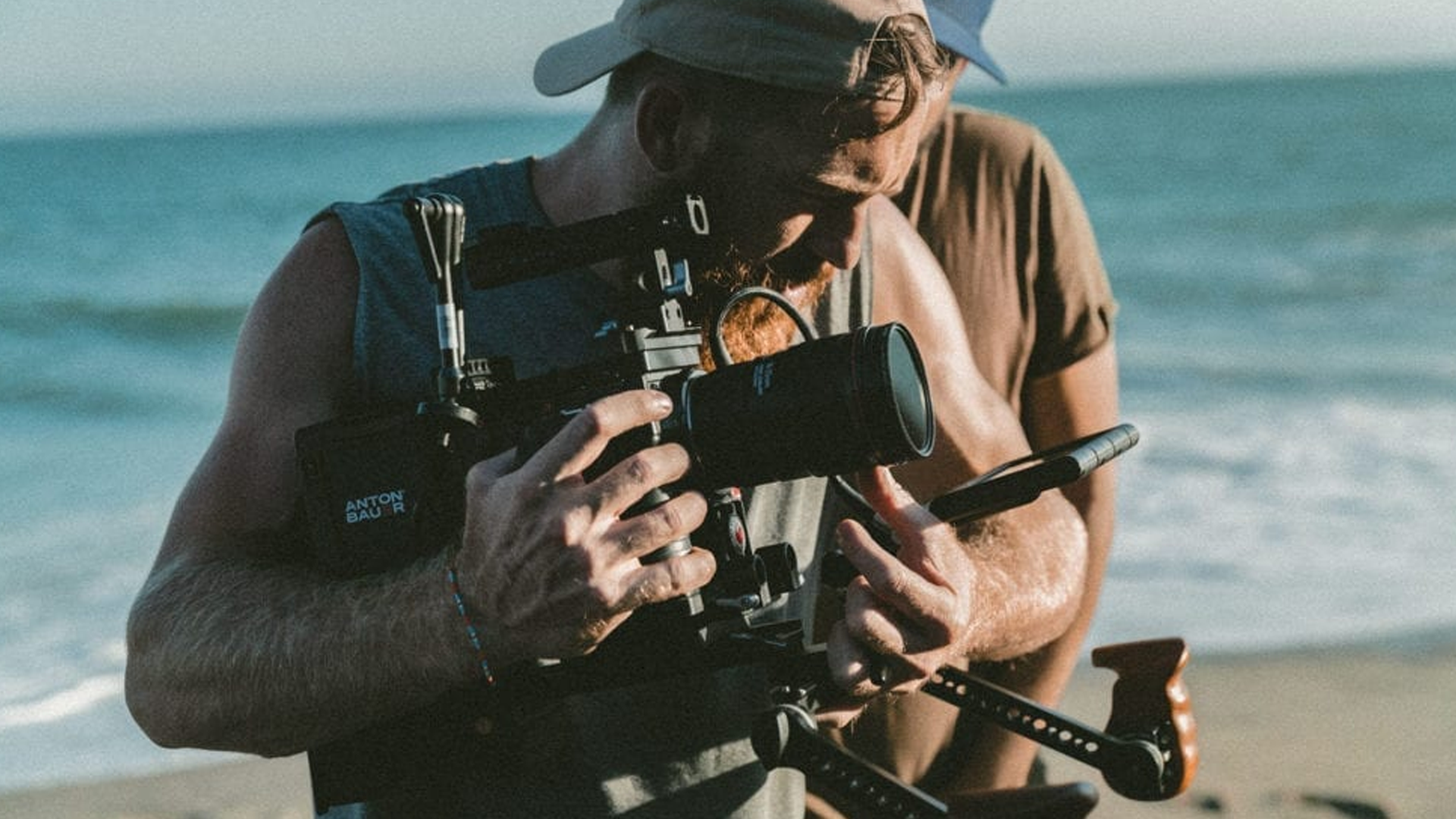
Filming a foreign culture is not like filming your own. There are a lot of challenges that are faced by people to film a foreign culture. One of the basic reasons is that you may not know much about that culture, which will act as a drawback when trying to accurately record it. It is not about the niche of the location, but the reality of it and where that takes us. When you film culture, you must have a great understanding of it. Therefore, you should study it to get a good understanding of the nuances of the culture.
Films have a huge impact on other societies, and if your film lacks the essence of the culture, it won’t be able to give a good impression to your viewers. A lot of people get overwhelmed by other cultures and their uniqueness, most of the times getting an idea about other cultures through film, television, and the internet. Be it culture or any other information, filming has played a huge role in cultivating an impression on the minds and hearts of the people.
Filming Foreign Cultures – A Challenge
Filming in foreign countries is difficult because penetrating deep into the society of any country and culture requires a good understanding of the subject. Having that understanding can alleviate these hurdles.
Seeing the Foreign Culture Through the Eyes of the Camera
Most of us get the an idea of foreign cultures from media representations, this is because we cannot experiences all the worlds cultures for ourselves. That’s why people use social media and other internet platforms to learn about different cultures around the world. That is why whatever you make, people will see, and start believing. Which is why there is a huge responsibility to show different cultures accurately.
Challenges Faced During Filming
When you take ownership of showing the world different foreign cultures, you must make sure that everything is authentic. Made up stories won’t do because they will have a bad impact on the culture but also your credibility. That is why you should try to keep things real and accurate.
Originality
Keeping everything in its original state is the best thing video maker can do. Uniqueness and creativity are acceptable, but when the things start getting faux, the real essence gets lost, which is why it’s important preserve things in their original form.
Money and Finances
For film shooting in foreign countries, a lot of money and financial aids are required. Very good artists don’t get the opportunity to use their abilities because they don’t have enough money to film. For productive and creative filmmaking you need money, if that’s not there the problems are obvious.
Video Making on Demand
If there is a demand for a particular story, everyone will try to make videos on that subject. Sometimes, in these cases, the real story gets hidden. Many times, people do not film what is needed because they re too busy filming what is trending. This affects the film industry and the filmmakers as well.
Lack of Creativity
Lack of creativity is no doubt a huge challenge for the film making industry. Sequels and remakes of the videos are not something in demand and that demeans the meaning of creativity. If you want to make a statement, you must show how creative you are. This will help you get to the limelight in no time.
The film industry is progressing at a very fast pace and with great power comes huge responsibility, that’s what we all need to understand. Admit the fact that what you portray will be saved forever, and that slight irresponsibility can ruin another culture, which should not be the intention of anyone.
This article was written by William Roy, check out his website Movie Trivia
Academia
What is USC’ Media Institute for Social Change?
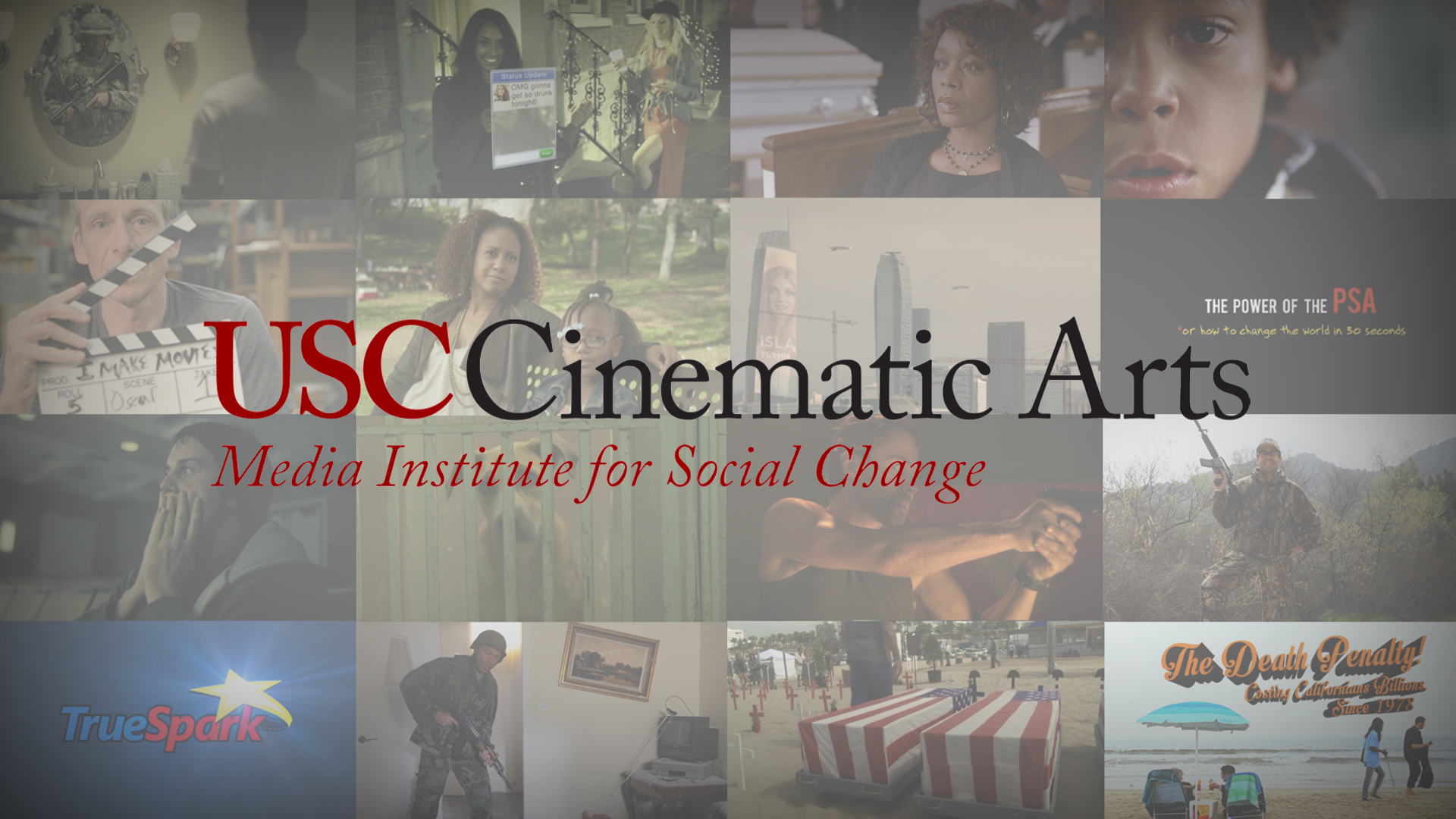
The Media Institute for Social Change, known as MISC, is a production and research institute at the USC School of Cinematic Arts focused on using media as a tool for effecting social change. Founded in 2013 by Michael Taylor, a producer and Professor in the School’s famed Film & Television Production Division, the MISC maxim is that “entertainment can change the world.” It spreads this message by producing illustrative content, and by mentoring student projects, awarding scholarships and leading research. “We are training the next generation of filmmakers to weave social issues into their films, television shows and video games,” says Taylor. “As creators the work we do has a huge impact on our culture and that gives us an opportunity to influence good outcomes.”
In recent years MISC has partnered with organizations including Save the Children, National Institutes of Health and Operation Gratitude, and creative companies like Giorgio Armani, the Motion Picture Association of America and FilmAid, to create groundbreaking work that have important social issues woven into the narrative. MISC also worked with USC’s Keck School of Medicine to create Big Data: Biomedicine a film that shows how crucial big data has become to creating breakthroughs in the medical world. Other MISC films include the upcoming The Interpreter, a short film centered on an Afghan interpreter who is hunted by the Taliban, and The Pamoja Project, the story of 3 Tanzanian women who determined to help their communities by immersing themselves in the worlds of microfinance, health and education. MISC has also partnered with the app KWIPPIT to create emojis that spread social messages. Together they co-hosted the Project Hope L.A. Benefit Concert to spread awareness about the massive uptick of homelessness in Los Angeles.
The Power of the PSA or How to Change the World in 30 Seconds, which documented the institute’s collaboration with the Los Angeles CBS affiliate KCAL9 to make PSAs on gun violence, internet safety, and PTSD among veterans. Another MISC-sponsored film, Lalo’s House, was shot in Haiti with the intention of exposing the child trafficking that is rampant there and in other countries, including the United States. The short film (which is being made into a feature) was used by UNICEF to encourage stricter legislation prohibiting the exploitation of minors, and has won several awards, including a Student Academy Award.
“Our goal,” says Taylor, “is to send our students into the industry with the skills and desire to make entertainment that has positive impact on our culture.” The dream is a variety of mass-media entertainment where social messages aren’t an afterthought but are central to the storytelling.
For more about MISC and its projects, go to uscmisc.org.
-

 SIE Magazine10 years ago
SIE Magazine10 years agoWhat Makes A Masterpiece and Blockbuster Work?
-

 Filmmakers10 years ago
Filmmakers10 years agoFilms That Changed The World: Philadelphia (1993)
-

 Companies7 years ago
Companies7 years agoSocial Impact Filmmaking: The How-To
-
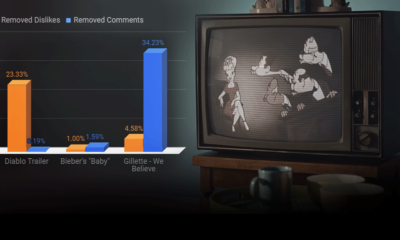
 Media Impact6 years ago
Media Impact6 years agoCan We Believe The Gillette Ad?
-

 SIE Magazine10 years ago
SIE Magazine10 years agoDie Welle and Lesson Plan: A Story Told Two Ways
-

 Academia9 years ago
Academia9 years agoFilmmaking Pitfalls in Deal-Making and Distribution
-

 Academia9 years ago
Academia9 years agoJoshua Oppenheimer: Why Filmmakers Shouldn’t Chase Impact
-

 Filmmakers10 years ago
Filmmakers10 years agoMirror Mirror: An Exploration of Self-Awareness in Recent Hollywood Films











